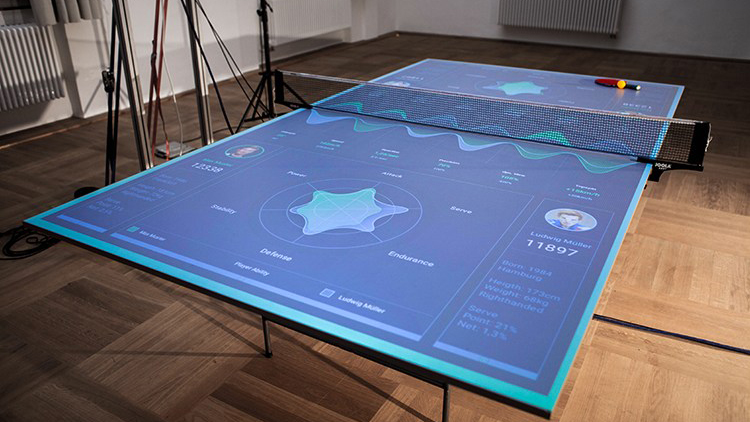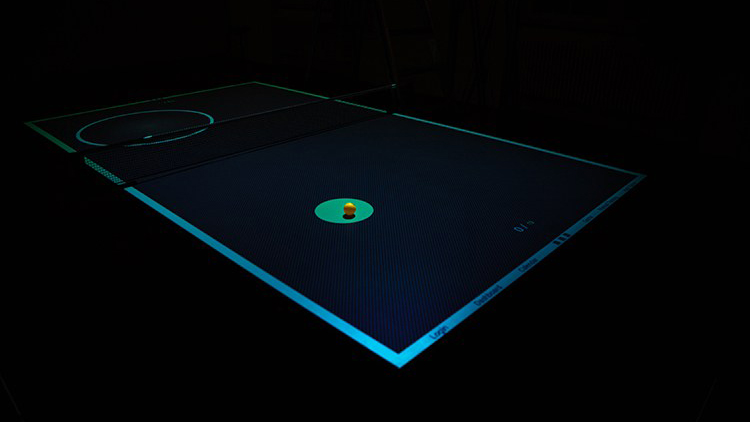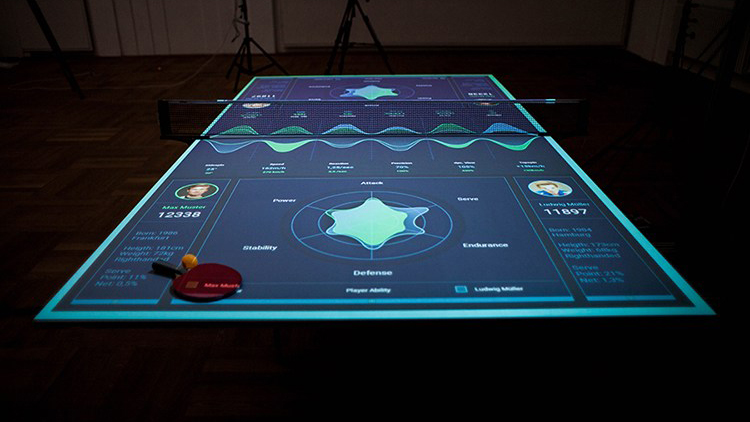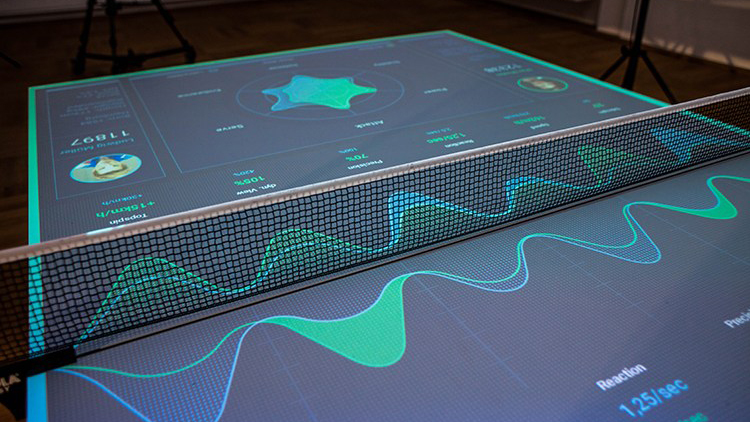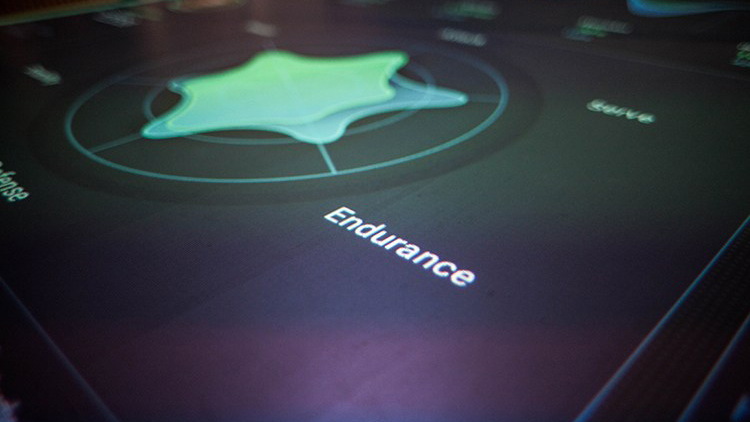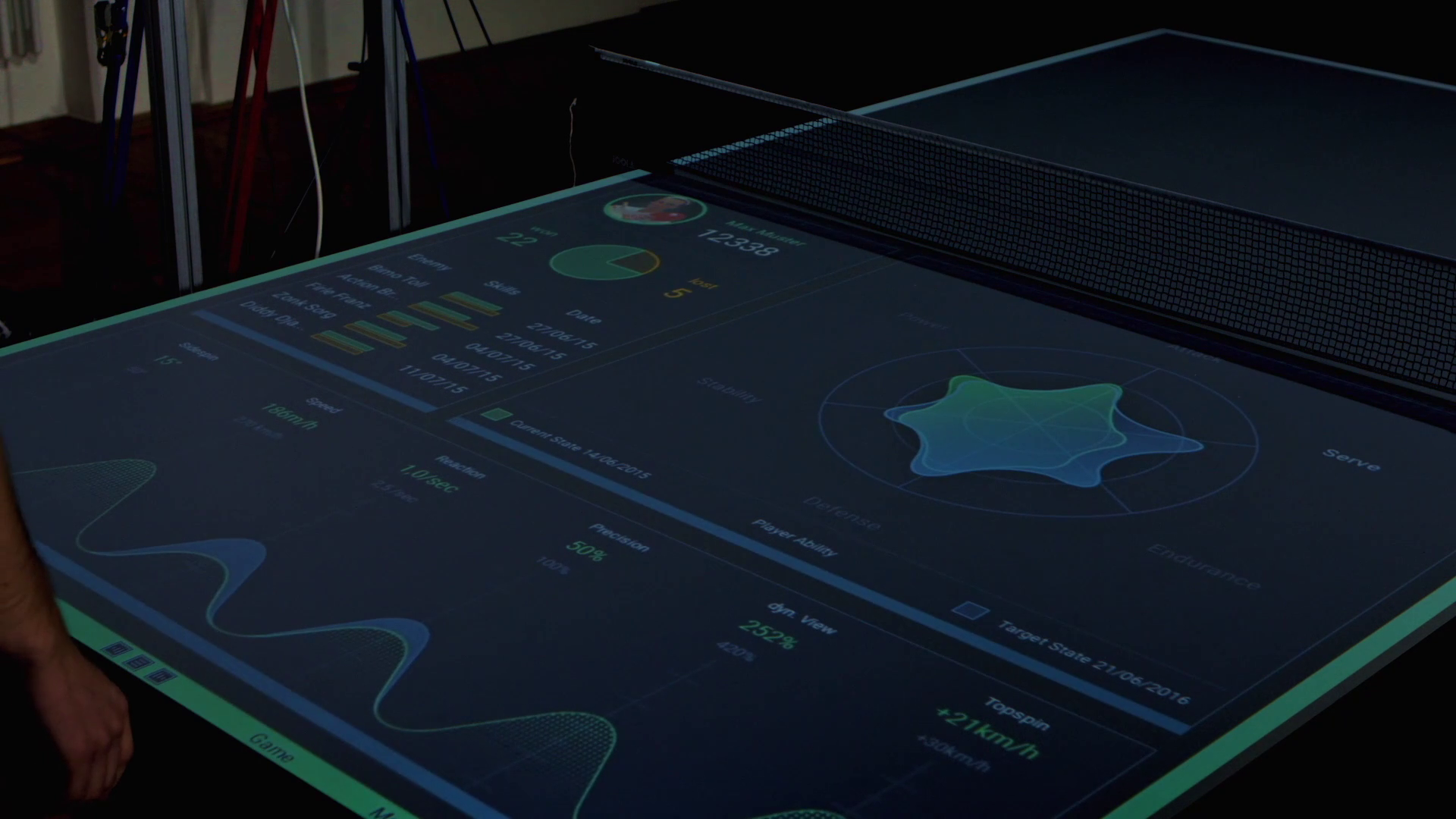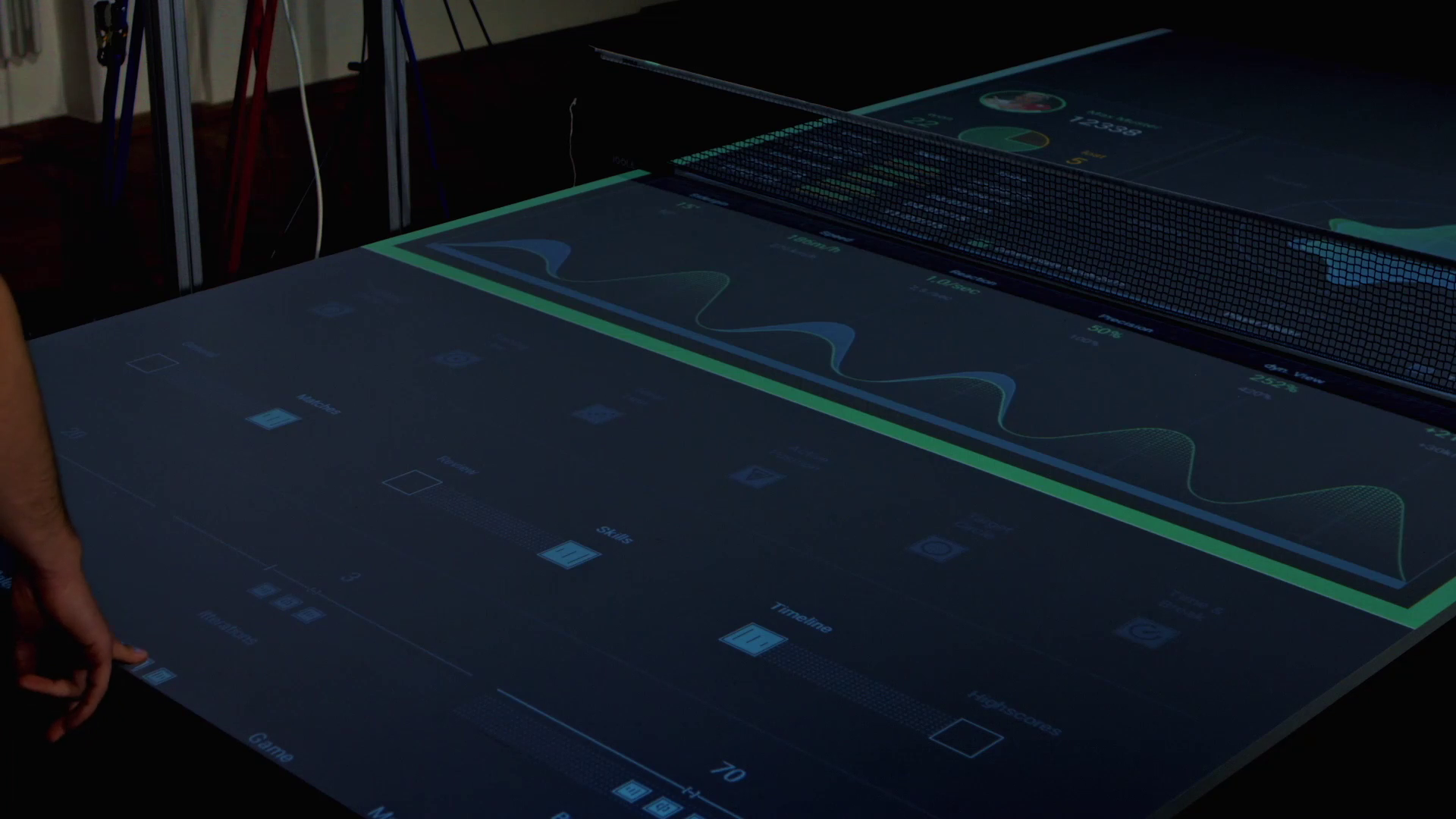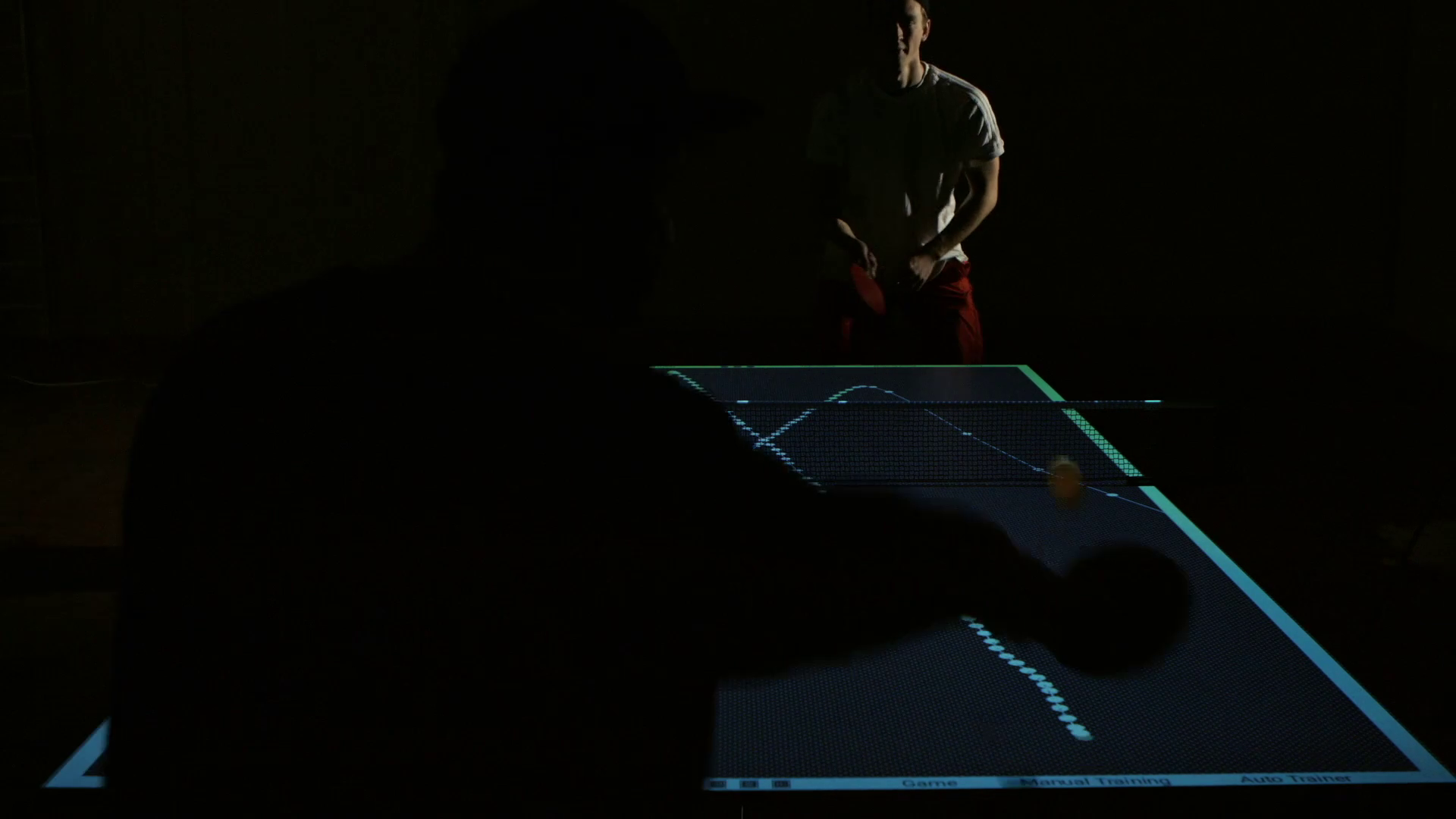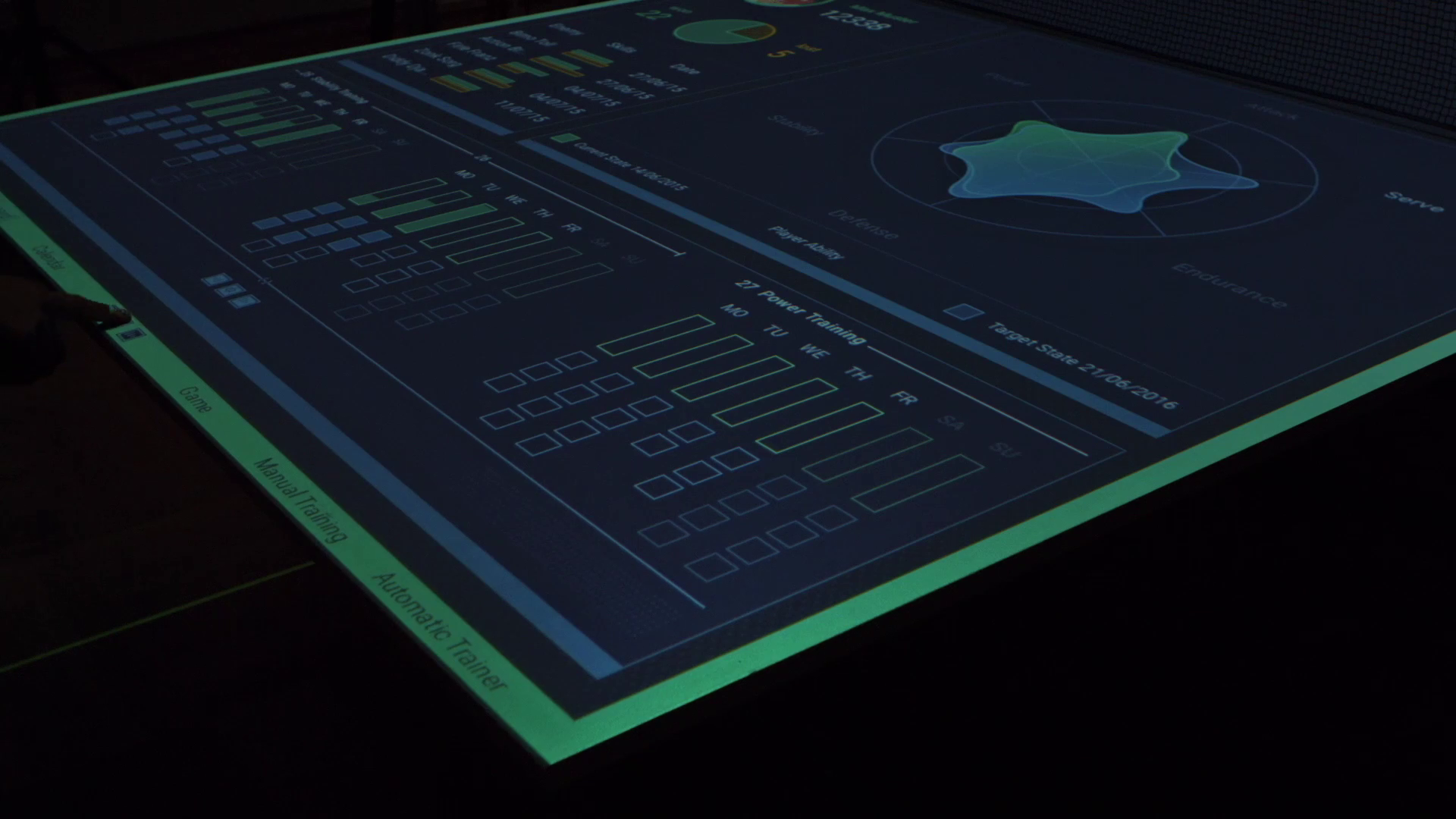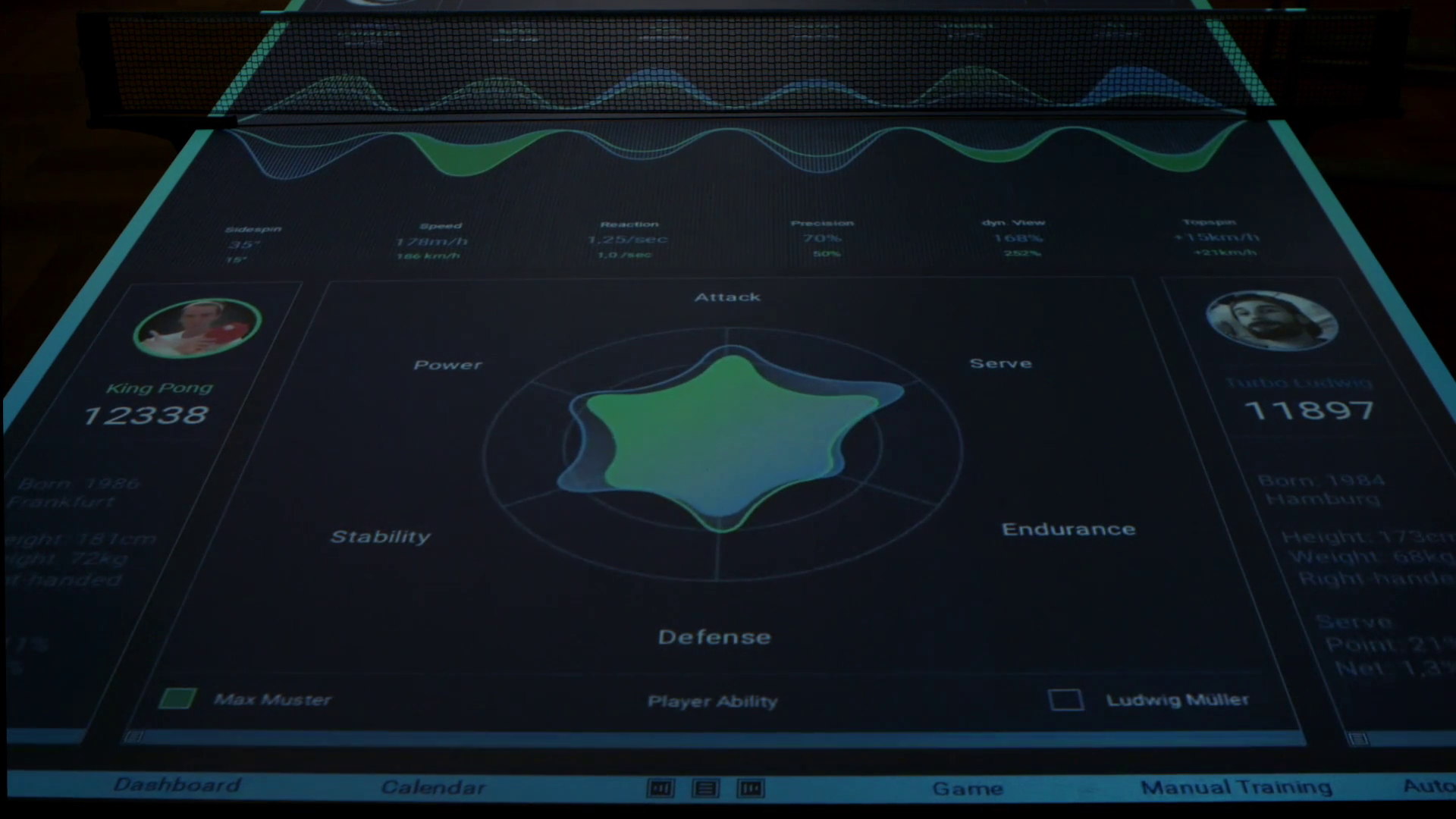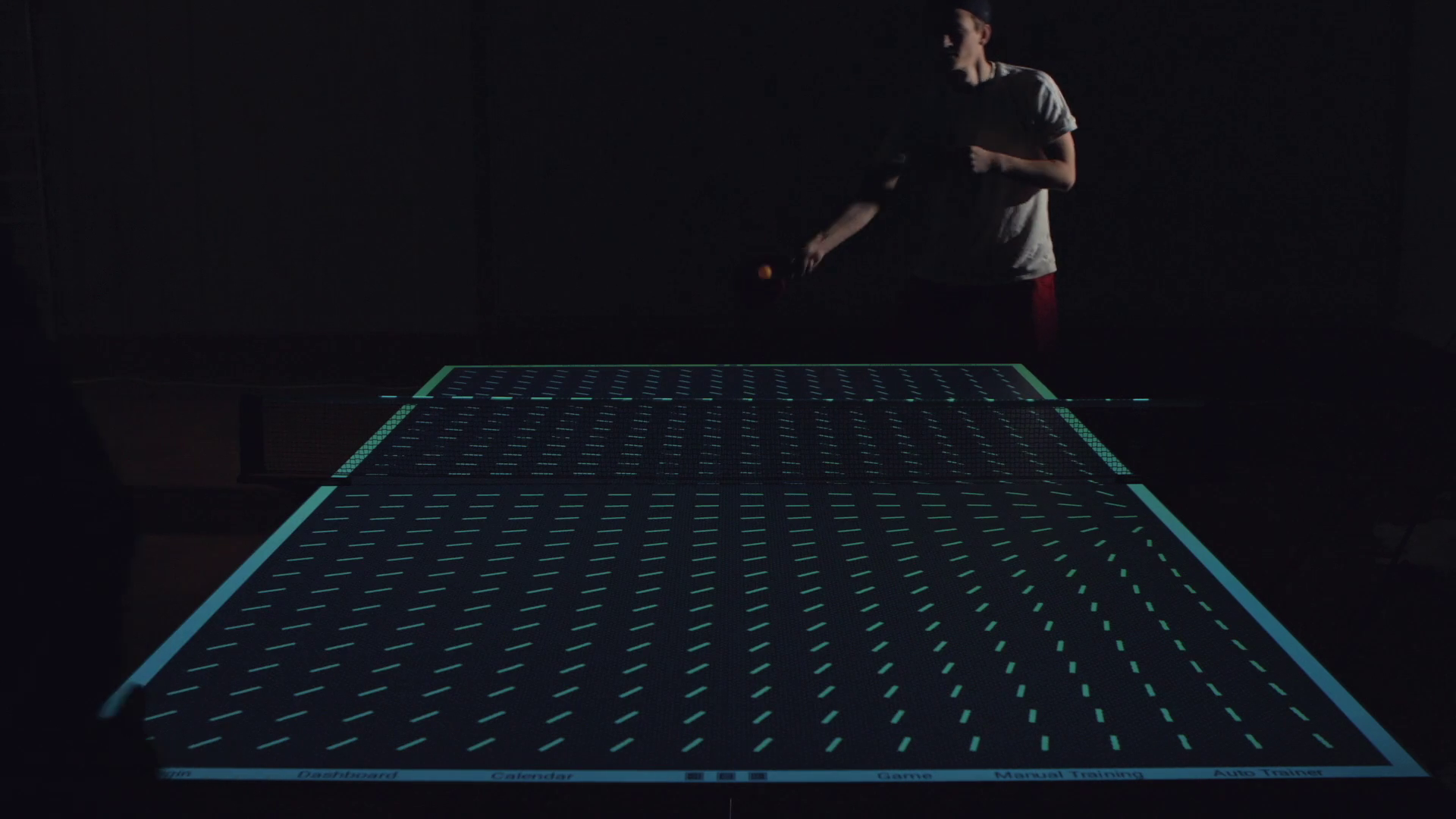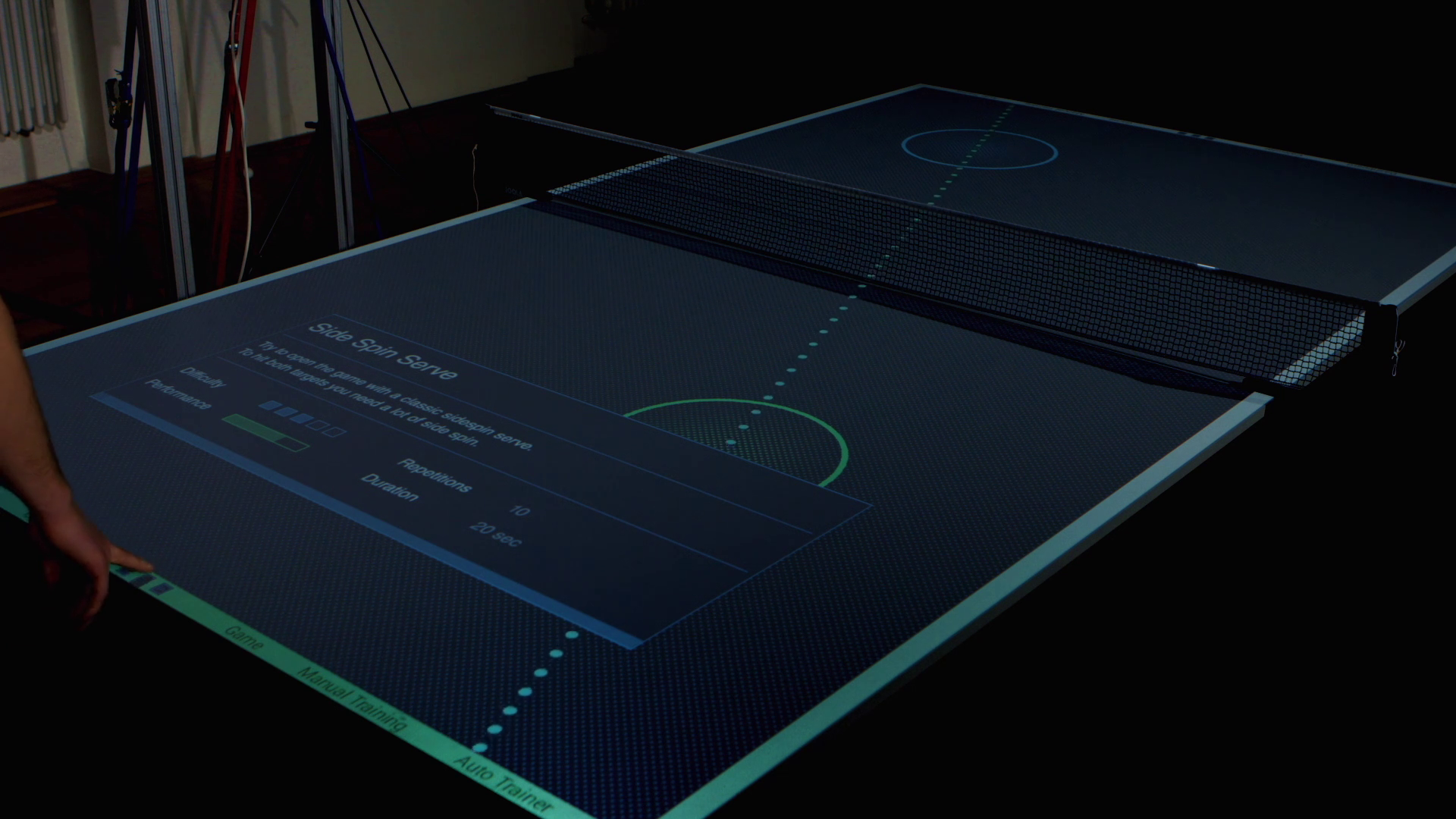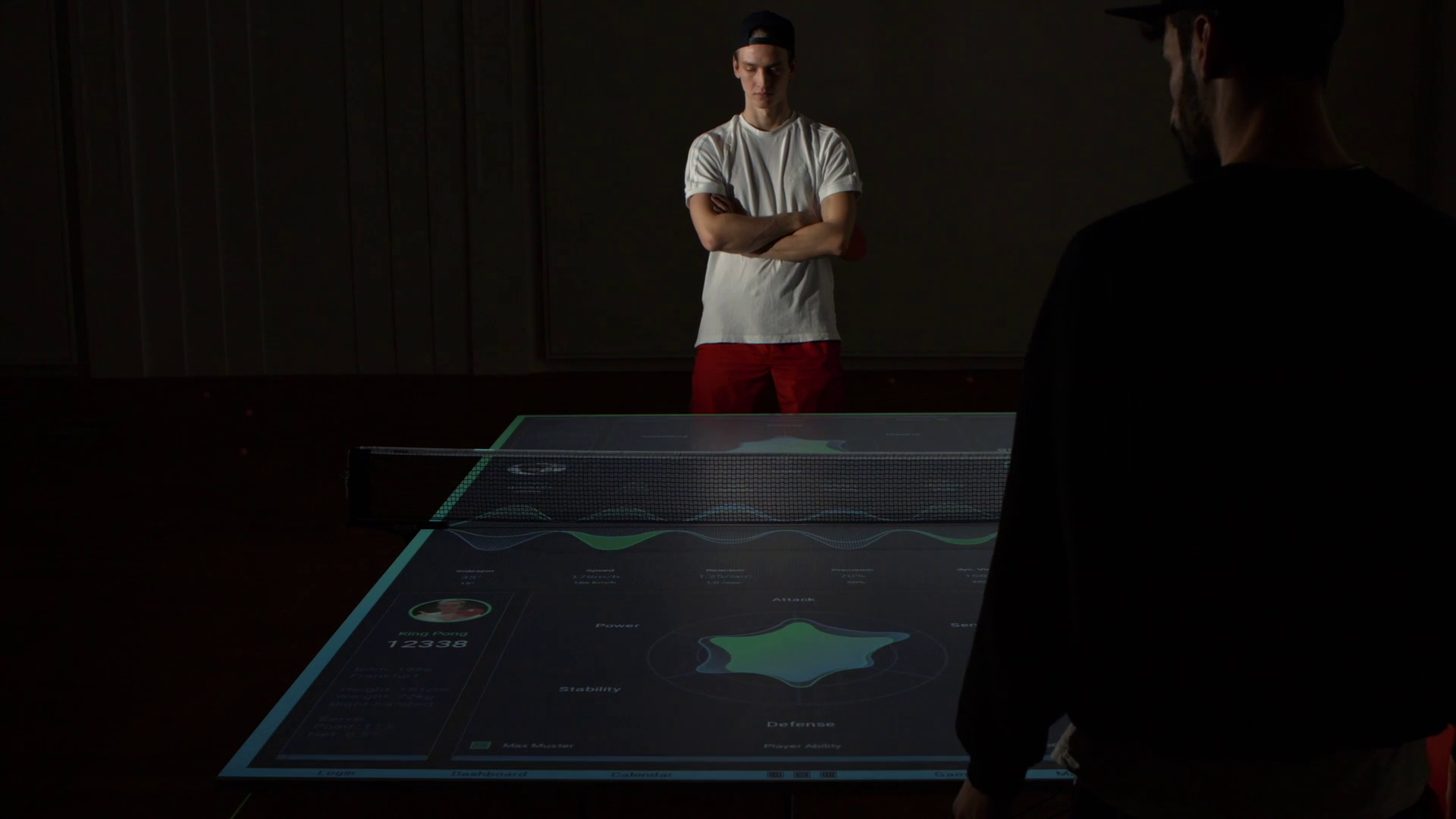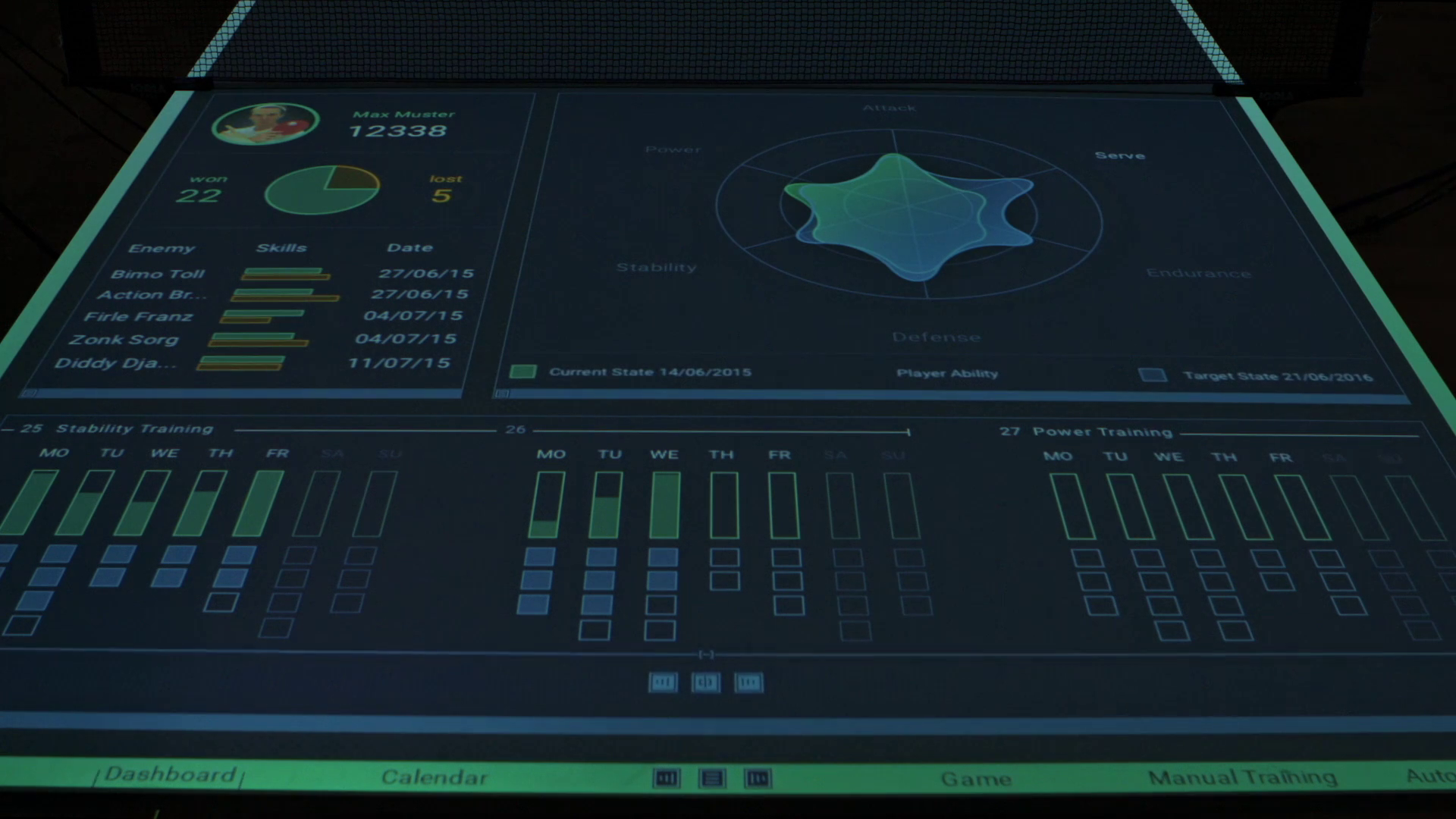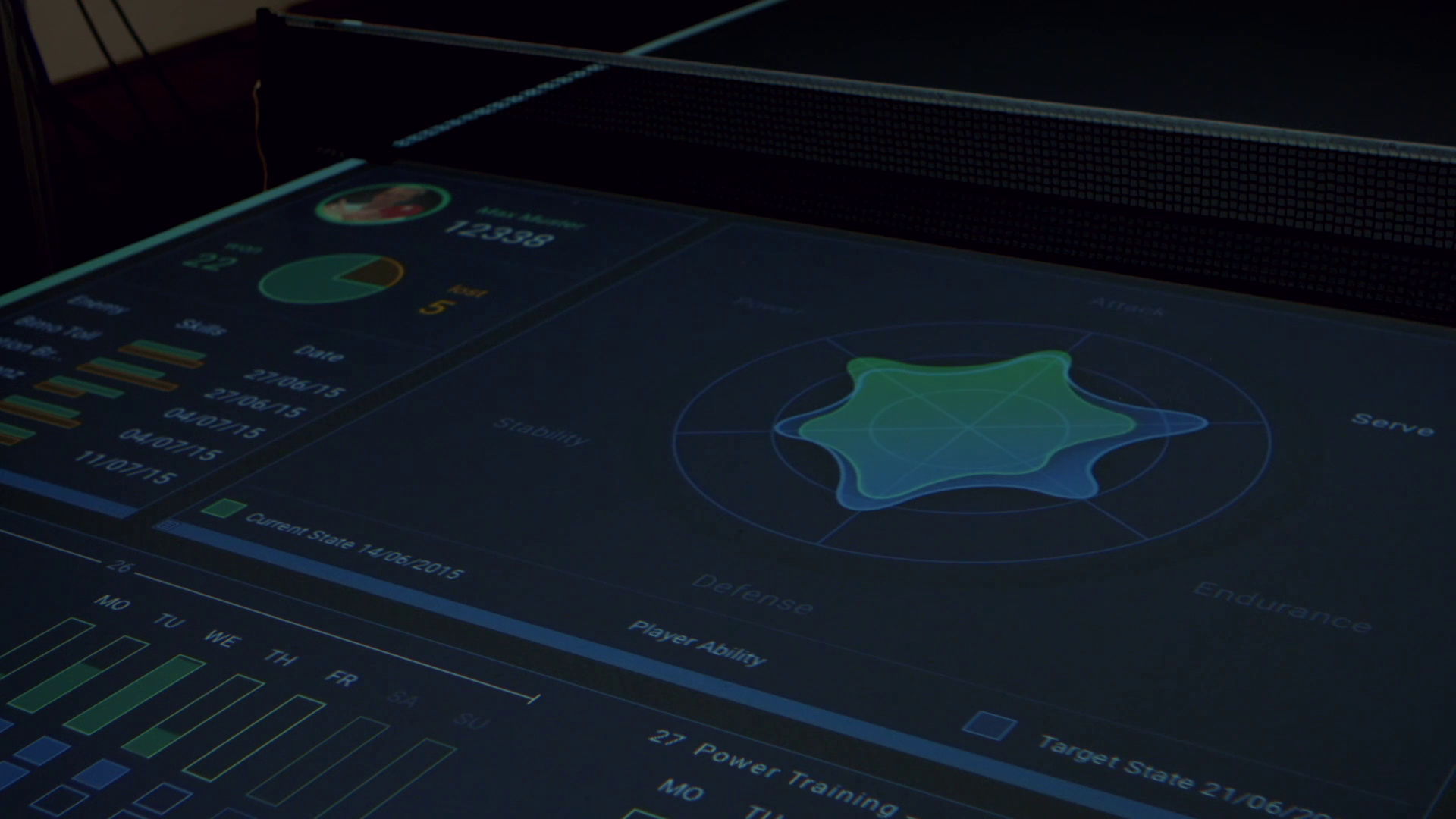For his thesis project, Thomas Mayer, a student at Germany’s University of Design Schwäbisch Gmünd, wanted to build a system capable of tracking a “pingpong ball in real time to create data visualizations for trainers and players.” This is manifested in the Table Tennis Trainer, a smart pingpong table that really, really wants you to succeed. Using augmented reality, Mayer developed a “projected mapped interface” that essentially shows players crucial information like where to land your serve, how your shots are performing, and a host of additional data on your game. “By projecting game obstacles on the surface,” Mayer writes, “I figured out that I can change the game play totally.”
To develop his high-tech table, Mayer set up a pingpong table and installed two Playstation CL-eye cameras and a full HD projector to both track a pingpong ball during game play and process the resulting data. Once he’d gathered enough information, he created a series of panels to display the most useful information, which could then be projected directly onto a pingpong table for real-time game analytics.
The most prevalent challenge he faced during his process, Mayer says, was actually designing a functional interface that took players’ ergonomics into consideration. “Project resolution, layout of the interface, and arrangement of buttons were the biggest problems that I had to test in many prototypes,” he noted.
Mayer’s invention is currently only in its prototype phase, so unfortunately, table tennis fans can’t get their hands on their own quite yet. But considering how cool this new system looks, Mayer may just have enough demand to really bring this Table Tennis Trainer to market.
